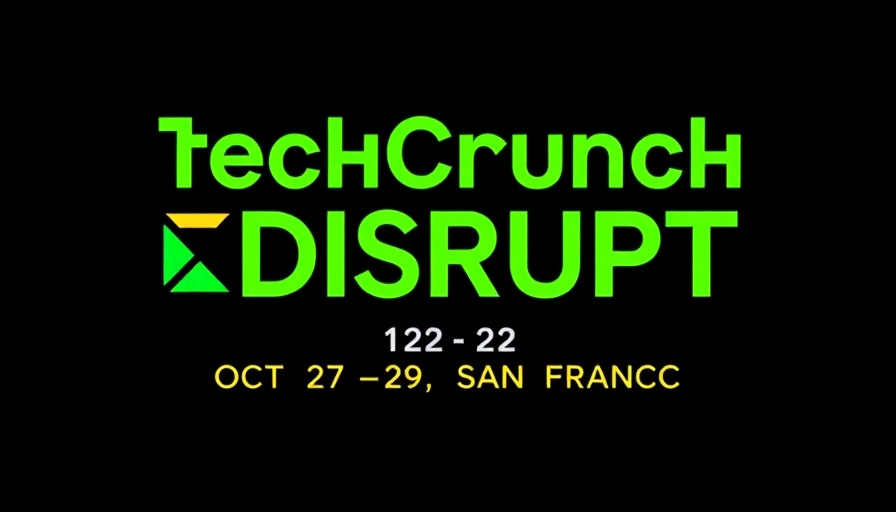
Unlocking the Future with Deep Cogito’s Hybrid AI Models
In the race to develop advanced artificial intelligence, startups are emerging from the shadows with groundbreaking ideas. One such startup is Deep Cogito, which recently unveiled its innovative suite of hybrid AI models designed to enhance reasoning capabilities. The company has developed a family of models that allow users to toggle between reasoning and non-reasoning modes—a significant leap forward in AI technology.
The Promise of Reasoning in AI
Deep Cogito’s hybrid models offer a unique approach to AI reasoning, akin to other notable models like OpenAI's o1. These reasoning-focused systems have demonstrated their prowess in challenging domains such as mathematics and physics, showing a remarkable ability to verify their own outputs by methodically approaching problems. However, the traditional reasoning models often encounter limitations, particularly when it comes to computing resources and latency. Deep Cogito bridges that gap by combining reasoning components with standard, non-reasoning elements, enabling users to receive quick answers for simple queries while also engaging in deeper analysis for complex questions.
Inside the Cogito 1 Models
The flagship line of models, called Cogito 1, operates across a spectrum of 3 billion to 70 billion parameters, with plans to introduce models containing up to 671 billion parameters soon. The number of parameters signifies the model’s complexity and problem-solving capacity—with more parameters typically translating to elevated performance. These models have surpassed leading open models in direct comparisons, such as those from Meta and the emerging Chinese AI startup, DeepSeek.
Innovation through Collaboration
Deep Cogito’s models did not sprout from scratch; they built upon Meta’s open Llama and Alibaba’s Qwen models. This synergy provides the foundation for Deep Cogito’s exceptional performance by enhancing previous iterations through novel training approaches, which refine the base models' functionality and allow for those toggleable reasoning features.
Benchmarking Success: Standing Out in a Crowded Market
Cogito’s internal benchmarking reveals that the Cogito 70B, particularly in its reasoning-enabled mode, consistently outperforms competitors like DeepSeek’s R1 on various mathematical and linguistic evaluations. Notably, when reasoning is disabled, it still surpasses Meta’s Llama 4 Scout model on LiveBench, an AI performance benchmark.
The Road Ahead: Scalability and Innovations
Deep Cogito is still at an early stage in its scaling journey, employing only a fraction of the computing power typically utilized for extensive training of large language models. The company is actively exploring complementary post-training methods to bolster ongoing self-improvement. As the AI landscape evolves, the company's ambitious goal is to steer the development of “general superintelligence,” which they define as AI exhibiting abilities beyond the capabilities of the average human and discovering new, unimagined potentials.
A Look at the Team Behind the Innovation
Founded in June 2024, Deep Cogito operates out of San Francisco and lists Drishan Arora and Dhruv Malhotra as co-founders. Both bring profound experience from their previous roles—Malhotra at Google’s DeepMind and Arora as a senior software engineer, adding weight to the young startup's credentials as it strives to reshape the AI domain.
The Significance of Open Access to AI Technology
By making all Cogito 1 models available for download or via APIs with providers like Fireworks AI and Together AI, Deep Cogito ensures broad access to these powerful technologies. This model fosters innovation and creativity within the tech community and allows a diverse set of developers and researchers to experiment with advanced AI capabilities.
Conclusion: What’s Next for Deep Cogito?
As Deep Cogito embarks on its journey through the rapidly changing landscape of AI, the implications of their hybrid model capabilities are significant—not just for developers and businesses but for society at large. By continuing to push the boundaries of AI development and inviting collaboration through open access models, we can expect profound advancements in this technology that could alter the course of human interaction with machines. The potential for AI that embodies reasoning and adaptability is just beginning to be realized, and it will be intriguing to observe how Deep Cogito unfolds its vision in the months and years ahead.
 Add Row
Add Row  Add
Add 




Write A Comment